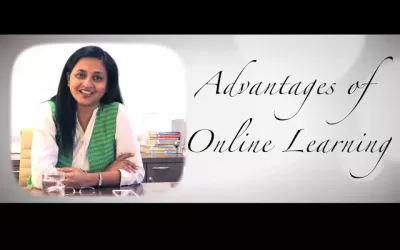 Finnish Education System: A lot is happening in the education space, from online to offline. Every board is trying to update their curricula and make them unique, every academician is trying to make their institute the best, and every parent is investing more and more now to ensure the correct inputs are given to their child.
Finnish Education System: A lot is happening in the education space, from online to offline. Every board is trying to update their curricula and make them unique, every academician is trying to make their institute the best, and every parent is investing more and more now to ensure the correct inputs are given to their child.
Now, education tops the agenda in every sphere. And if you are trying to figure out the best possible education destination, Finland certainly tops. No wonder Finland has topped the charts of being the World’s Happiest Country, now twice in a row.
I recently attended a Training program in Understanding the Finnish Education System in Helsinki, Finland. I had heard a lot about how their system was one of the best in the world, but getting a chance to experience it firsthand was undoubtedly an experience I wasn’t ready to let go of. A small group of 15 participants from the world – UK, USA, Brazil, China, Kazakhstan, Singapore, Canada, Ireland, and myself from India- made the learning and sharing process enjoyable.
I was unsure what I would learn, considering it was a five-day Summer school for Teachers to understand their functioning. I was the only non-teaching participant among the global Academicians and School Administrators group. As a counsellor, my curiosity about what they are doing right in their system was always more – as my work involves working with students, parents, academic institutes, working professionals, and corporations.
Over the past 20 years, I have observed that Careers emerge or are driven by the education system. Once education is in place, it is easier to make the right choices. When I mention education, I focus on conceptual clarity and the eagerness to learn.
Coming back to the training program, we were assured that we would get the insight but with ease and fun. One of my fellow participants from Canada had an opening question for our trainer: Why do your students love to go to school? He asked this, as he had interviewed many students about their view on attending school, and he was shocked to hear that all of them [from across grades] loved school, something unheard of for most of us.
Of course, by the end of the session, we understood the reason. To begin with, Finnish culture values schooling, their language, and literacy the most. The education system is designed not just from the learner’s perspective but also from a socio-cultural point of view. They view learning as an active and constructive process rather than a passive reproductive process.
The new Finnish curriculum has phenomenon-based learning and high-quality subject matter pedagogy [the method and practice of teaching]. They have tried to fix the problem of transferring knowledge from academic context to real-life situations. Early childhood and pre-primary education are imparted to 5 – 6-year-olds, but they are primarily fun, and no subjects are taught.
In comprehensive Schools, primary education starts at the age of 7 and until the age of 16 [grade 1 to 9] and then in General Upper Secondary Schools, matriculation exams are for the next three years [i.e. grade 12], can be either followed up by Vocational qualification or entry into any bachelor’s degree.
The students can go up to Ph.D. There is a concept of a voluntary additional year of primary education [after grade 9], a gap year before students decide on a career path. This gives a student the right choice about their field of study. About the schools, why are they loved? The reasons are striking – the school days are short, and homework is minimal.
For smaller classes, there’s almost no homework. All children get a hot and healthy free meal at school [no junk food allowed], even in high school. The study material is also accessible in comprehensive schools. There is no private tutoring, so parents’ education expenses are almost nil. The schools get communal support in funding education.
There is no gender gap, and all children are given equal opportunities. The curriculum is the same across the country, making it easier to intercut and bring about change. The Finnish system does not employ any external standardized student testing to evaluate the performance of their schools.
There is no inspection system either. The students get to design their classroom, and though the curriculum is defined in the primary schools, there is no fixed daily timetable. The teachers and students jointly decide the flow. There are camp schools too – which help teachers teach certain subjects practically. These camp schools are outbound and residential and help students understand theory in a practical setting.
Mathematics, Physics, Biology, Geography, Sustainable Development and so on are taught in these camp schools. It is a joint effort between the Teacher and the Camp school instructor. To get more updates, continue reading our next piece on the Finnish Education System.
Frequently Asked Questions for the Finnish Education System:
1. What makes the Finnish education system so highly regarded worldwide?
The Finnish education system is renowned for its focus on equality, well-trained teachers, minimal standardized testing, student-centred learning, and a holistic approach to education.
2. At what age do children in Finland start school?
In Finland, children typically begin their formal education at seven when they enter primary school, known as “peruskoulu.”
3. How long is compulsory education in Finland?
Compulsory education in Finland lasts for nine years, from seven to sixteen. After that, students can continue their studies in various educational tracks.
4. What is the role of teachers in the Finnish education system?
Finnish teachers are highly trained professionals who have a significant degree of autonomy in the classroom. They are responsible for designing and delivering their curricula and assessments.
5. Is there a lot of homework in the Finnish education system?
No, the Finnish education system emphasizes a balanced workload and minimal homework, focusing on active learning during school hours and allowing students time for other interests and hobbies.
6. How are students assessed in Finland?
Assessment in Finland is based on a holistic approach that includes teacher evaluations, ongoing classroom assessments, and student self-assessment. Standardized testing is limited and not used for ranking schools or students.
7. Do Finnish students have a lot of standardized tests?
No, Finnish students take very few standardized tests. The emphasis is on assessing students’ understanding of the curriculum rather than extensive testing.
8. Is higher education in Finland free for both domestic and international students?
While higher education is tuition-free for domestic and EU/EEA students, non-EU/EEA international students may have to pay tuition fees, although scholarships are available.
9. What is the role of extracurricular activities in Finnish schools?
Extracurricular activities are encouraged but not mandatory. Schools often offer a variety of clubs and activities to enrich students’ lives outside of the classroom.
10. What is the secret behind Finland’s educational success?
Finland’s success can be attributed to many factors, including a highly trained teaching workforce, a focus on child well-being, equitable education policies, and a commitment to lifelong learning.
11. Can international students study in Finnish schools or universities?
Yes, Finland welcomes international students at all levels of education. Many universities offer programs in English, and there are exchange opportunities for students from abroad.
12. How does the Finnish education system promote inclusivity and equality?
Finland’s education system promotes inclusivity by providing extra support to students with special needs, ensuring that all students have equal access to high-quality education, regardless of their background or abilities.
These FAQs provide an overview of the critical aspects of the Finnish education system, helping individuals understand why it is highly regarded and how it differs from education systems in other countries.






